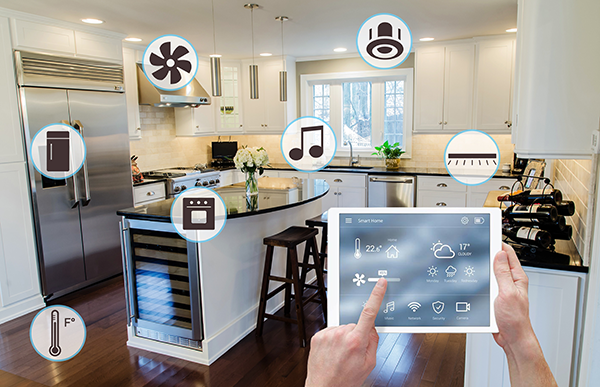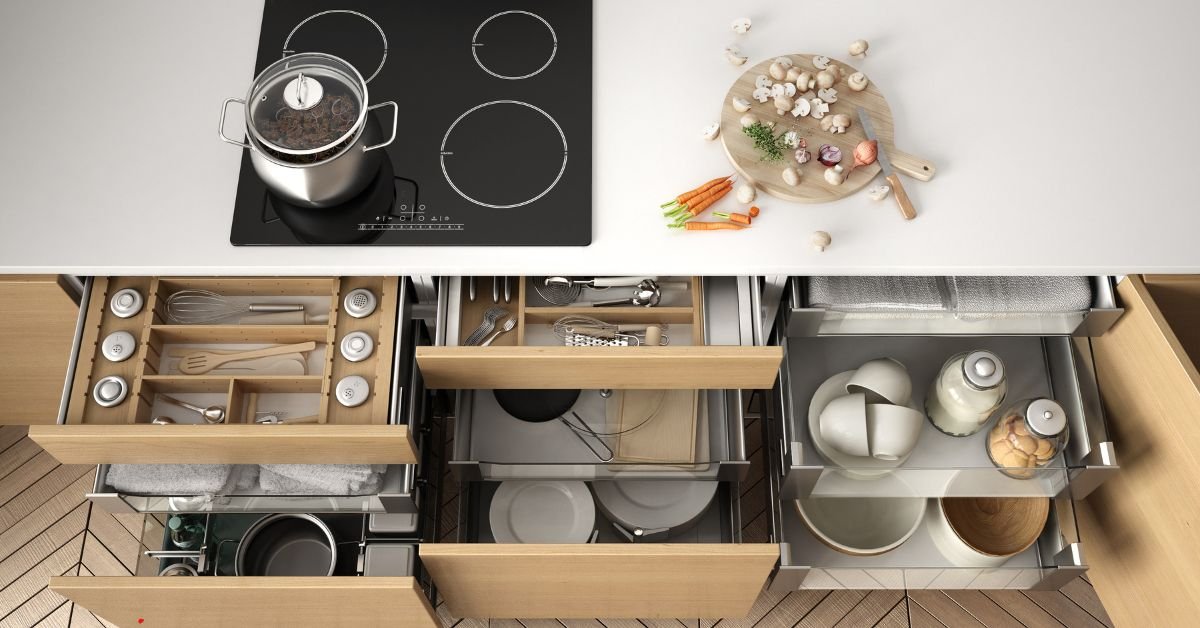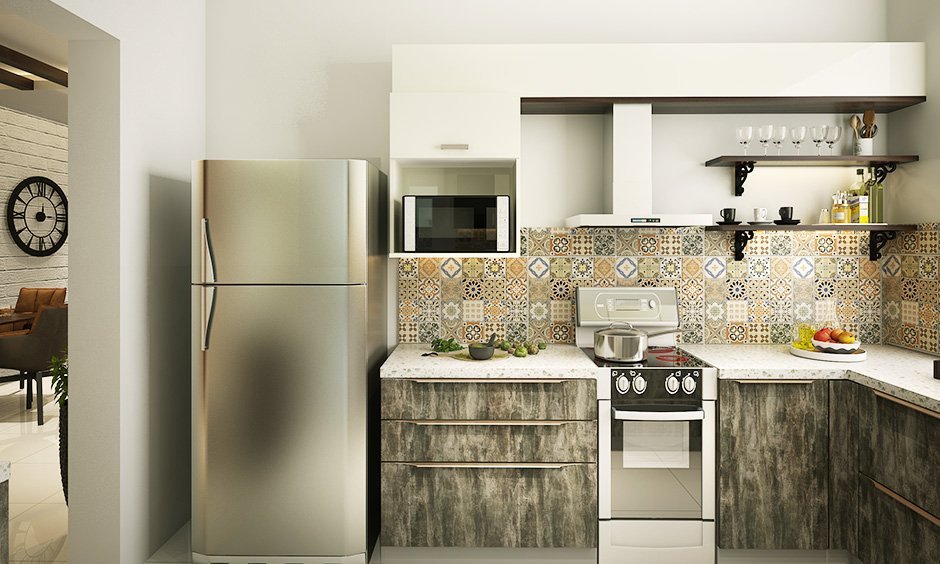Smart Kitchen Recycling Solutions
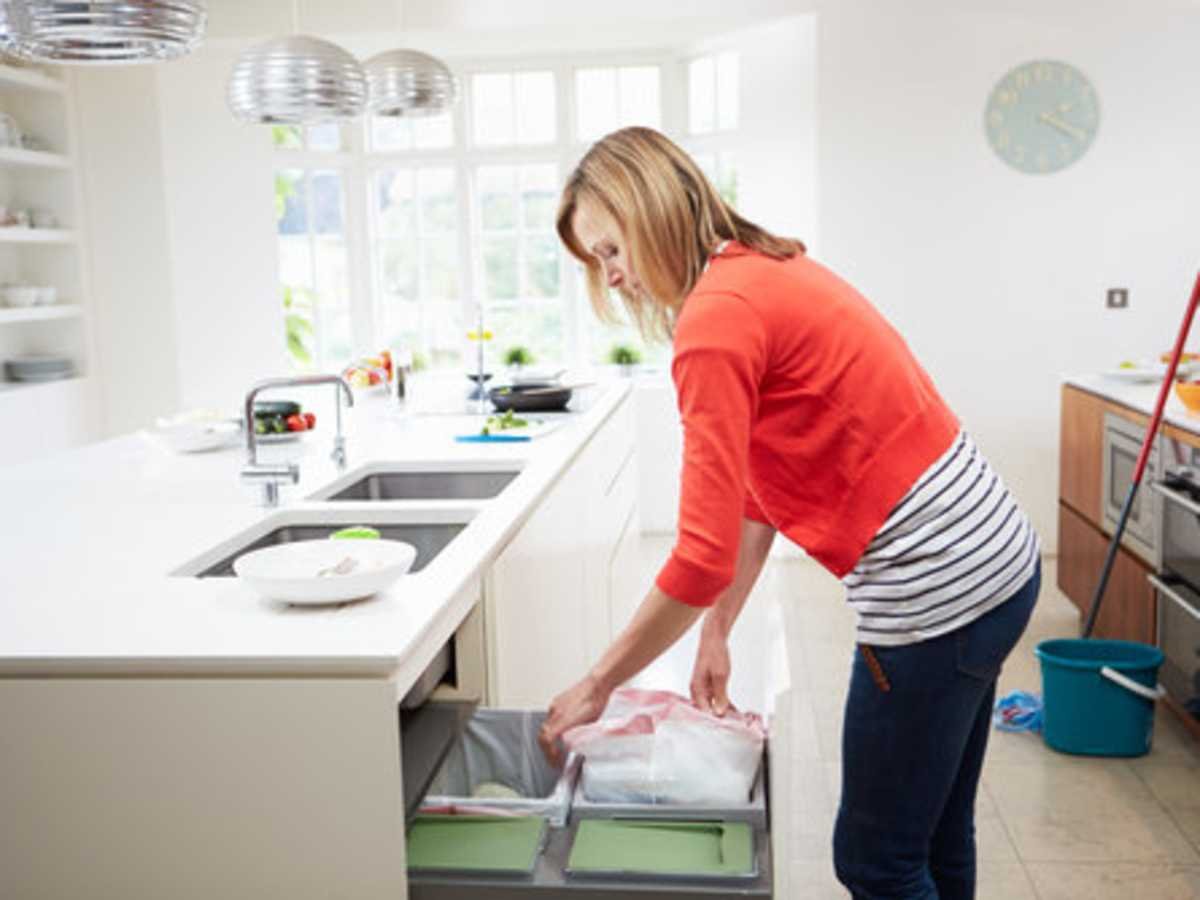
As sustainability becomes a priority in modern living, recycling is an essential practice that every household should embrace, especially in the kitchen, where a significant amount of waste is generated.
From food scraps to packaging materials, the kitchen is a hub of activity that can produce a lot of waste, making it crucial to implement effective recycling solutions. With advancements in technology, smart kitchen recycling solutions are now available to make the process more efficient, convenient, and eco-friendly.
This guide explores various smart kitchen recycling solutions that can help you manage waste more effectively. From automatic sorting bins to IoT-enabled waste management systems, these innovations will not only streamline your recycling efforts but also contribute to a more sustainable lifestyle.
Smart Recycling Bins
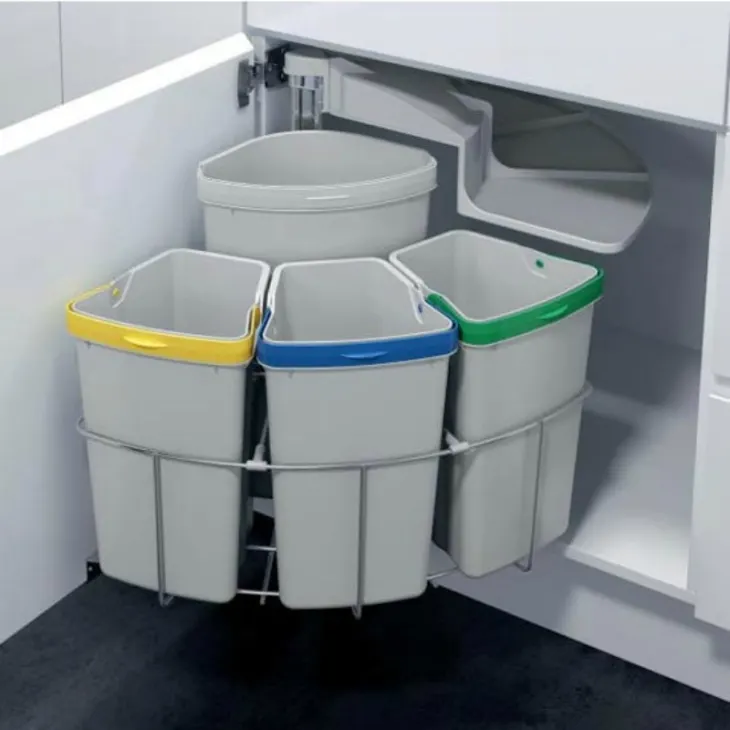
Automatic Sorting Bins
One of the most significant advancements in kitchen recycling technology is the introduction of automatic sorting bins. These smart bins use sensors and AI to identify different types of waste and sort them into the appropriate compartments.
For example, a smart bin might have separate sections for recyclables like plastic, glass, and paper, as well as a section for organic waste that can be composted.
The primary advantage of automatic sorting bins is that they take the guesswork out of recycling. Many people are unsure of what can and cannot be recycled, leading to contamination of recyclable materials.
By automatically sorting waste, these bins help ensure that recyclables are properly separated, making the recycling process more efficient and reducing the amount of waste that ends up in landfills.
Sensor-Activated Lids
Sensor-activated lids are another smart feature found in modern recycling bins. These lids open automatically when they detect motion, allowing you to dispose of waste without touching the bin. This hands-free operation is not only convenient but also more hygienic, as it reduces the spread of germs and bacteria in the kitchen.
In addition to improving hygiene, sensor-activated lids can help minimize odors by keeping the bin tightly sealed when not in use. Some smart bins also come with built-in odor control systems, such as carbon filters or deodorizing sprays, to further reduce unpleasant smells.
Connected Bins with Waste Management Apps
Smart recycling bins that connect to your smartphone via an app offer a range of additional features that can enhance your waste management efforts. For example, these apps can provide real-time notifications when the bin is full and needs to be emptied.
They can also track your recycling habits, offering insights into how much waste you generate and providing tips on how to reduce it.
Some apps even allow you to schedule waste pickups or find nearby recycling centers, making it easier to dispose of your waste responsibly.
By integrating technology into the recycling process, connected bins and waste management apps make it easier to stay on top of your recycling goals and contribute to a more sustainable environment.
Compacting and Deodorizing Solutions
Lets Explore this.
Trash Compactors for Space Efficiency
In a kitchen, space is often at a premium, and large amounts of waste can quickly take up valuable real estate. Trash compactors are a smart solution that can help you save space by reducing the volume of your waste.
These devices use powerful mechanisms to compress trash into smaller, more manageable sizes, allowing you to fit more waste into a single bin.
Trash compactors are especially useful for households that generate a lot of waste or have limited space for storing recycling bins. By compacting your trash, you can reduce the frequency of trips to the curb and make better use of your kitchen space.
Odor Control Systems and Features
Managing odors is a common challenge when dealing with kitchen waste, especially when it comes to organic materials like food scraps. Smart recycling bins with built-in odor control systems offer an effective solution to this problem.
These systems use a combination of filters, sprays, and sealing mechanisms to neutralize odors and keep your kitchen smelling fresh.
For example, carbon filters are commonly used in smart bins to absorb and trap odors, preventing them from escaping into the kitchen. Some bins also feature deodorizing sprays that automatically release a burst of fragrance each time the lid is opened, further masking unpleasant smells.
By incorporating odor control features into your recycling setup, you can maintain a cleaner, more pleasant kitchen environment.
Smart Kitchen Recycling Solutions
Let’s Review the Smart Kitchen Recycling Solutions.
Smart Food Storage to Minimize Waste
Reducing food waste is a critical component of any recycling strategy, and smart food storage solutions can play a significant role in achieving this goal. Smart refrigerators, for example, are equipped with sensors and cameras that can track the contents of your fridge and provide reminders when food is about to expire.
Some models even suggest recipes based on the ingredients you have on hand, helping you use up items before they go bad.
In addition to smart refrigerators, vacuum sealers and food storage containers can help extend the shelf life of perishable items. By keeping food fresher for longer, these tools reduce the amount of waste that ends up in the trash, ultimately decreasing the need for frequent waste disposal and recycling.
Composting Solutions in the Kitchen
Composting is an eco-friendly way to recycle organic waste, turning food scraps into nutrient-rich compost that can be used to enrich garden soil. With the rise of smart technology, composting has become easier and more convenient than ever.
Countertop composters, for example, are compact devices that can be used in the kitchen to break down food scraps quickly and efficiently.
Some smart composters use heat and agitation to speed up the decomposition process, allowing you to create compost in just a few hours. Others are equipped with sensors that monitor moisture and temperature levels, ensuring optimal conditions for composting.
By incorporating a smart composter into your kitchen, you can reduce the amount of organic waste that goes to landfills and contribute to a more sustainable lifestyle.
Repurposing Kitchen Waste
Another way to reduce waste in the kitchen is by finding creative ways to repurpose items that might otherwise be thrown away. For example, vegetable scraps can be used to make homemade broth, and leftover bread can be turned into breadcrumbs or croutons.
Even non-food items like glass jars and plastic containers can be repurposed for storage or DIY projects.
Smart apps and online platforms can provide inspiration and ideas for repurposing kitchen waste, helping you find new uses for items that would otherwise end up in the trash. By thinking creatively about how to reuse and repurpose materials, you can reduce your waste output and make the most of your kitchen resources.
Integration with Home Automation
Let’s Discuss How to Integrate Your Home With Home Automation.
Smart Assistants for Waste Management
Integrating your kitchen recycling solutions with smart home assistants like Amazon Alexa or Google Assistant can further streamline your waste management efforts.
For example, you can use voice commands to check the status of your recycling bins, set reminders to take out the trash, or even order replacement filters for your smart bin’s odor control system.
In addition to providing hands-free control, smart assistants can also offer helpful tips and reminders for improving your recycling habits. For instance, they can remind you to rinse out containers before recycling or suggest ways to reduce food waste.
By integrating your recycling solutions with your smart home ecosystem, you can create a more cohesive and efficient waste management system.
IoT-Enabled Recycling and Waste Disposal
The Internet of Things (IoT) is transforming the way we manage waste in the kitchen. IoT-enabled recycling solutions can connect to your home network and communicate with other smart devices, creating a seamless and integrated waste management system.
For example, smart bins can send alerts to your smartphone when they are full or need to be emptied, while smart appliances can track your food waste and provide insights into how to reduce it.
IoT-enabled recycling solutions can also connect to municipal waste management systems, allowing for more efficient collection and disposal of waste.
For example, some cities are experimenting with smart trash cans that can alert waste collection services when they are full, reducing the need for unnecessary pickups and minimizing the environmental impact of waste disposal.
Recycling Reminders and Notifications
Staying on top of your recycling efforts can be challenging, especially in a busy household. Smart recycling solutions that offer reminders and notifications can help you stay organized and ensure that you never miss a recycling day.
For example, smart bins can send alerts to your smartphone when it’s time to take out the trash, while connected apps can provide reminders for specific recycling tasks, such as rinsing out containers or separating recyclables.
In addition to reminders, some smart recycling apps offer notifications when new recycling programs or services are available in your area. This can help you stay informed about the latest recycling initiatives and take advantage of new opportunities to reduce your waste footprint.
Design and Aesthetics
Let’s Explore some tips on Design and Aesthetics.
Space-Saving Recycling Stations
When designing a smart kitchen, it’s important to consider how your recycling solutions will fit into the overall layout and aesthetic of the space.
Space-saving recycling stations are an excellent option for kitchens with limited space, as they combine multiple recycling bins into a single unit that can be easily tucked away under a counter or in a cabinet.
These stations often feature modular designs, allowing you to customize the number and size of bins to suit your needs. Some models even include pull-out drawers or shelves for additional storage, making them a versatile and functional addition to any kitchen.
Blending Recycling Solutions with Kitchen Design
Incorporating recycling solutions into your kitchen design can be challenging, but with the right approach, you can create a seamless and cohesive look.
One way to achieve this is by choosing recycling bins and stations that match the style and color scheme of your kitchen. For example, sleek, stainless steel bins can complement a modern kitchen, while wood or bamboo bins can add a natural touch to a more rustic space.
Another option is to integrate recycling solutions into your cabinetry. Built-in recycling bins can be hidden behind cabinet doors, keeping them out of sight and preserving the clean, uncluttered look of your kitchen.
By carefully considering the design and placement of your recycling solutions, you can create a kitchen that is both functional and aesthetically pleasing.
Customizable Recycling Units
Customizable recycling units offer a flexible and personalized solution for managing waste in the kitchen. These units allow you to choose the size, shape, and configuration of your recycling bins, making it easy to create a setup Here’s the remainder of the piece on “Smart Kitchen Recycling Solutions”.
Customizable Recycling Units (cont’d)
Customizable recycling units offer a flexible and personalized solution for managing waste in the kitchen. These units allow you to choose the size, shape, and configuration of your recycling bins, making it easy to create a setup that fits your specific needs and space constraints.
Some customizable units even include labels or color-coded compartments to help you easily sort different types of waste, ensuring that your recycling process is as efficient and organized as possible.
Incorporating customizable recycling units into your kitchen design allows you to create a space that not only meets your functional needs but also reflects your personal style. Whether you prefer a sleek, modern look or a more traditional aesthetic, there are customizable options available to match your kitchen’s decor.
Conclusion – Smart Kitchen Recycling Solutions
As we continue to prioritize sustainability in our daily lives, smart kitchen recycling solutions offer an innovative way to manage waste more effectively and efficiently. By incorporating technology into your kitchen recycling efforts, you can streamline the process, reduce waste, and contribute to a healthier environment.
From automatic sorting bins and sensor-activated lids to compacting solutions and smart food storage, these advancements make it easier than ever to recycle responsibly.
Additionally, by integrating your recycling solutions with home automation systems and IoT-enabled devices, you can create a cohesive and convenient waste management system that fits seamlessly into your modern kitchen.
Whether you’re looking to save space, reduce odors, or simply make your recycling routine more efficient, the smart solutions outlined in this guide can help you achieve your goals.
By staying informed about the latest trends and advancements in kitchen recycling, you can continue to refine your waste management practices and make a positive impact on the environment for years to come.
In conclusion, smart kitchen recycling solutions are an investment in both your home and the planet. By adopting these innovative technologies, you can create a cleaner, more organized kitchen while also contributing to a more sustainable future.

